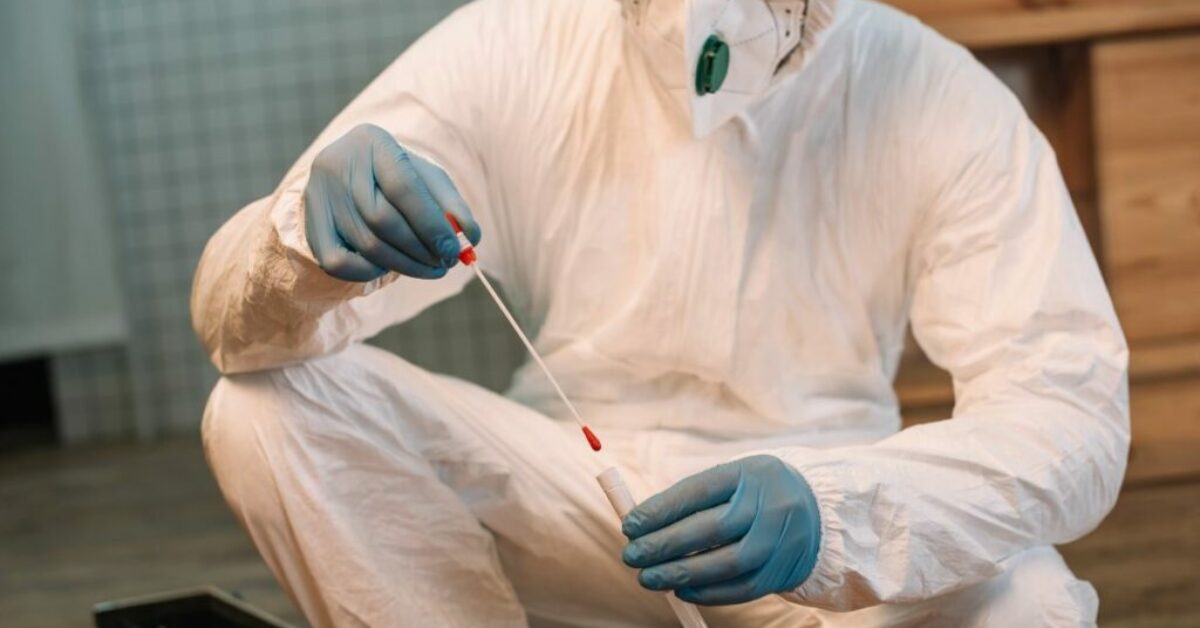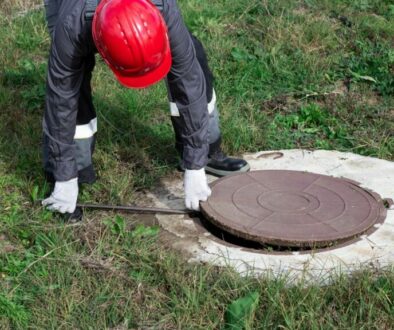How To Become A Forensic Investigator?
Forensic investigation is a fascinating and rewarding career that involves analyzing evidence collected from crime scenes to help solve and prevent crimes. If you have a passion for science, a keen eye for detail, and a desire to make a difference in your community, then you might consider becoming a forensic investigator.
Steps To Becoming A Forensic Investigator
The field of forensic investigation is a fascinating and exciting career choice for those who have a passion for science and criminal justice. Forensic investigators are responsible for collecting and analyzing evidence from crime scenes, and their work can make all the difference in solving a case and bringing criminals to justice.
To become a Forensic Investigator you’ll need to follow these steps:
- Obtain a Degree
The first step in becoming a forensic investigator is to obtain a degree in a relevant field such as forensic science, chemistry, biology, or criminal justice. While a bachelor’s degree is generally sufficient, it is important to choose a program that provides a strong foundation in the scientific principles that underpin forensic investigation. Some universities offer specialized forensic science programs that are designed specifically for students who want to pursue a career in this field.
For more information, you can check out universities accredited by the Forensic Science Education Programs Accreditation Commission (FEPAC). - Gain Experience
After earning your degree, you will need to gain some practical experience in the field. Many entry-level forensic investigators start out as crime scene technicians or forensic lab technicians, where they assist senior investigators with collecting and analyzing evidence. This is an excellent way to gain hands-on experience in the field and to learn from experienced professionals who can provide valuable mentorship and guidance. Here are some:
ATF Forensic Science Internships: The Bureau of Alcohol, Tobacco, Firearms and Explosives (ATF) provides unpaid, competitive summer internships in various forensic science areas. Interns engage in research and contribute to scientific publications, working at ATF laboratories in Atlanta, Georgia, and Beltsville, Maryland.
FBI Honors Internship Program: This 10-week paid internship offers undergraduate and graduate students the chance to work alongside FBI professionals. Interns may assist in data analysis, support investigations, and gain exposure to forensic science applications within federal law enforcement.
Center for Forensic Science Research & Education (CFSRE) Internships: CFSRE offers internships that provide hands-on learning through mock casework and validation studies. Interns gain experience in data analysis, report writing, and courtroom testimony preparation.
National Institute of Justice (NIJ) Research Assistantship Program: This program offers doctoral students the opportunity to work with NIJ scientists, contributing to criminal justice research, including forensic science projects. Participants gain practical experience and contribute to advancements in the field. - Undergo Specialized Training
In addition to gaining practical experience, you may also need to undergo specialized training in areas such as bloodstain pattern analysis, firearms examination, or digital forensics. Many law enforcement agencies and forensic science laboratories offer training programs that are designed to provide investigators with the skills and knowledge they need to excel in their field. Here are some:
Federal Law Enforcement Training Centers (FLETC): The Federal Law Enforcement Training Centers (FLETC) provide the Crime Scene Investigators Training Program (CSITP), a seven-week advanced forensics technical program. This program offers comprehensive training in crime scene management, evidence processing, and specialized forensic techniques.
National Forensic Academy (NFA): The National Forensic Academy (NFA) offers an intensive 10-week training program focusing on evidence identification, collection, and preservation. The NFA curriculum is developed by leading forensic practitioners and includes hands-on training in various forensic disciplines
Forensic Sciences Mentoring Institute (FMI): The Forensic Sciences Mentoring Institute offers programs where students work alongside experienced forensic scientists, providing practical exposure and guidance. - Become Certified
Finally, some forensic investigator jobs require certification by professional organizations such as the American Board of Criminalistics or the International Association for Identification. These certifications demonstrate that you have met certain standards of knowledge and expertise in the field of forensic investigation, and can be a valuable asset as you pursue your career.
In conclusion, becoming a forensic investigator requires a combination of education, practical experience, specialized training, and certification. With dedication and hard work, however, it is possible to build a rewarding and fulfilling career in this exciting field.
Skills Needed For Becoming A Forensic Investigator
Forensic investigation is a highly specialized field that requires a unique set of skills and abilities. In addition to a strong background in science and technology, forensic investigators need excellent communication, problem-solving, and critical-thinking skills. They must be able to analyze complex data, draw logical conclusions based on the evidence, and present their findings in a clear and concise manner.
Attention to detail and a meticulous approach to work are also essential skills for forensic investigators. They must be able to notice even the smallest details that may be relevant to a case, and they must be able to document their findings accurately and comprehensively.
Forensic investigators need to have a strong understanding of the legal system and the laws that govern it. They must be able to work within the framework of the law and be able to present their findings in a way that is admissible in court. They must also be able to work closely with law enforcement agencies, lawyers, and judges.
Forensic investigators must be able to work under pressure and handle stressful situations with ease. They may be required to work long hours, and they must be able to remain focused and alert throughout their investigations.
Forensic investigation is a field that requires constant learning and professional development. Forensic investigators must stay up-to-date with the latest techniques and technology in their field. They must also be willing to learn from their colleagues and be open to new ideas and approaches.
Finally, forensic investigators must possess a strong sense of ethics and a commitment to upholding the principles of justice. They must be able to distinguish between fact and opinion, and they must be able to maintain objectivity and impartiality throughout their investigations. They must also be able to handle sensitive information with discretion and confidentiality.
Overall, becoming a forensic investigator requires a unique combination of skills, knowledge, and personal qualities. It is a challenging and rewarding field that offers the opportunity to make a real difference in the world of law and justice.
What is A Forensic Investigator?
Forensic investigators are highly trained professionals who play a crucial role in solving crimes. They are responsible for collecting and analyzing physical evidence from crime scenes, and using their expertise to uncover clues that can help identify suspects and bring them to justice.
Forensic investigators are often called upon to work on high-profile cases, such as homicides, sexual assaults, and other serious crimes. They may specialize in a particular area of forensic science, such as DNA analysis, ballistics, or trace evidence, or they may have a broad range of skills and experience that allows them to handle a variety of cases.
Forensic investigators typically work for law enforcement agencies, government agencies, or private companies. They may be called upon to assist with investigations at the local, state, or federal level, and they may work closely with other professionals, such as police officers, detectives, and crime scene technicians.
In addition to their work at crime scenes, forensic investigators may also be called upon to serve as expert witnesses in criminal trials. They may be asked to present their findings to the court, and to help judges and juries make informed decisions about the guilt or innocence of a suspect.
Forensic investigation is a highly specialized field that requires extensive training and education. Many forensic investigators have advanced degrees in fields such as forensic science, chemistry, biology, or criminal justice. They may also have certifications or specialized training in areas such as blood spatter analysis, fingerprinting, or firearms examination.
Despite the challenges and demands of the job, forensic investigation can be a highly rewarding career for those who are passionate about solving crimes and bringing justice to victims and their families. If you are interested in pursuing a career in forensic investigation, there are many resources available to help you get started, including educational programs, professional associations, and job listings.
The Benefits of Working as A Forensic Investigator
Forensic investigation is a fascinating field that offers a wide range of benefits to those who pursue it as a career. Not only is it a challenging and intellectually stimulating profession, but it also offers the opportunity to make a real difference in the world by helping to solve crimes and bring criminals to justice.
One of the most exciting aspects of being a forensic investigator is the constant learning and professional development that is required. Forensic science and technology are constantly evolving, and investigators must stay up-to-date with the latest advances in order to be effective in their work. This means that there is always something new to learn and new challenges to tackle, which keeps the job interesting and engaging.
Another benefit of working as a forensic investigator is the sense of satisfaction that comes from knowing that your work is making a real difference in the world. By helping to solve crimes and bring criminals to justice, you are contributing to the safety and security of your community. This sense of purpose can be incredibly rewarding and can help to keep you motivated even during challenging times.
In addition to the satisfaction of knowing that you are making a difference, working as a forensic investigator also offers the opportunity to work with a variety of other professionals. This can include law enforcement officers, attorneys, and forensic scientists, among others. Collaborating with these experts can help you to expand your knowledge and skills, and can also lead to the development of strong professional relationships that can benefit you throughout your career.
Finally, forensic investigation can be a financially rewarding career. According to the Bureau of Labor Statistics, the average yearly salary in the United States was around $64,940 as of May 2023, with experienced investigators earning well over $90,000 per year. This means that you can enjoy a comfortable standard of living while also pursuing a career that is both intellectually stimulating and socially meaningful.
Working as a forensic investigator offers a wide range of benefits, including intellectual stimulation, a sense of purpose, opportunities for collaboration, and financial rewards. If you are interested in pursuing a career in this exciting field, there are many resources available to help you get started, including educational programs, professional associations, and networking opportunities.
If you are interested in a challenging and rewarding career that allows you to make a difference in your community, then becoming a forensic investigator may be the right choice for you. By following the steps outlined above, honing your skills and staying up-to-date with the latest advances in forensic science, you can start a fulfilling career that allows you to use your education and expertise to help solve crimes and make the world a better place.




